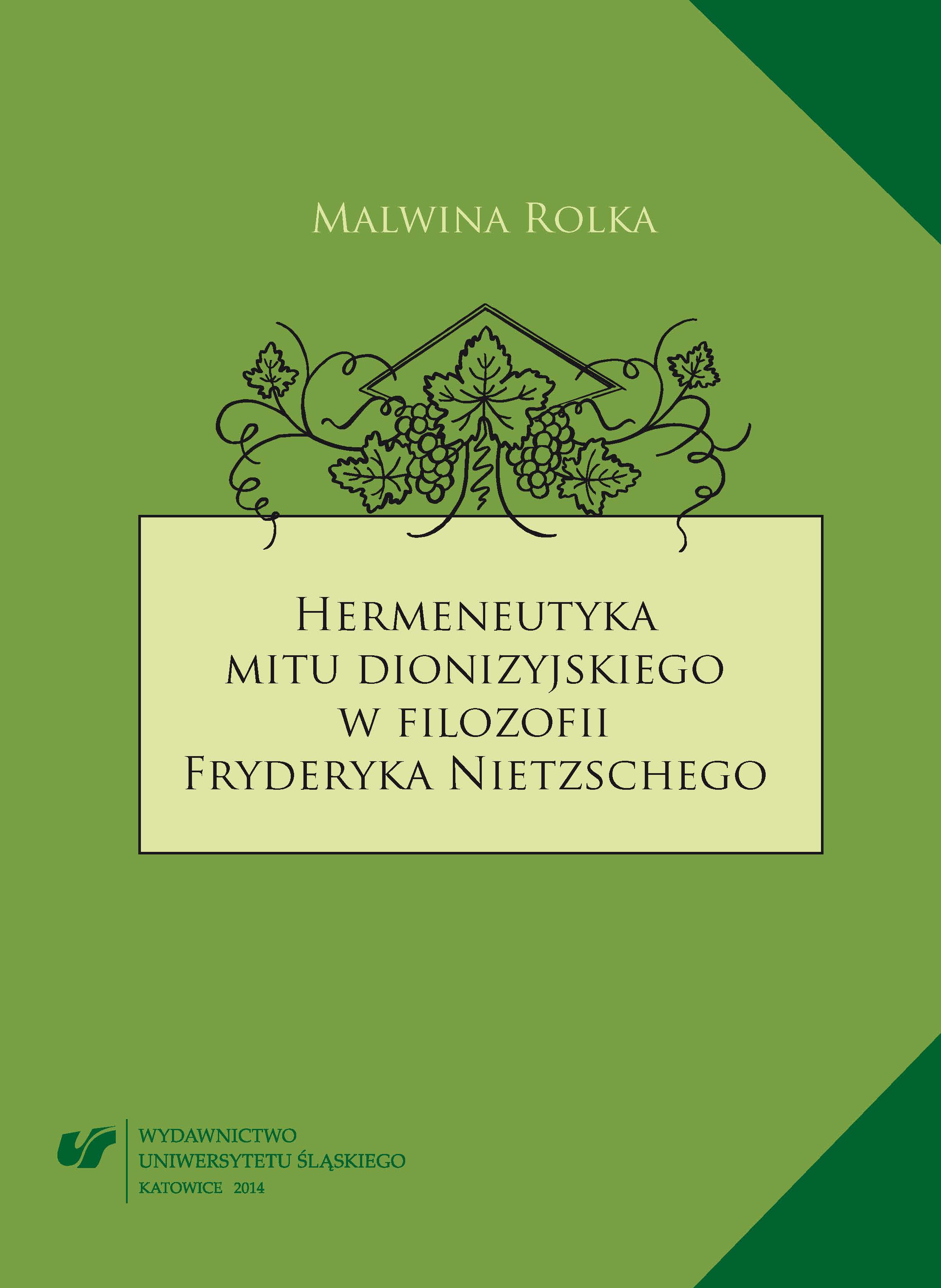Hermeneutyka mitu dionizyjskiego w filozofii Fryderyka Nietzschego
Hermeneutics of the Dionysian Myth in the Philosophy of Friedrich Nietzsche
Author(s): Malwina Rolka
Subject(s): Philosophy, History of Philosophy, Philosophical Traditions, Social Philosophy, Special Branches of Philosophy
Published by: Wydawnictwo Uniwersytetu Śląskiego
Keywords: Nietzsche's Philosophy;
Dionysian Aspects;
Mythical Symbols;
Übermensch;
Hermeneutical Dimensions;
Summary/Abstract: The book is dedicated to the Dionysian sides of Friedrich Nietzsche’s philosophy,at the same time attempting to examine his work through the prismof an explication grounded in the myth. Dionysus appears here both as a signof the past, through which by deciphering the universal character of mythicalsymbols one should seek ancient wisdom about the human nature, as well asa sign of the future, about to manifest itself in the figure of the Übermensch. InNietzsche’s work, this deity is sometimes perverse, wears masks, and tempts;his myth is also coupled with the deepest worries and desires of man, designatingthe horizon of his existence and eternal yearnings. The dualistic natureof the deity — reflecting life’s dynamic character — appears in the writingsof Zarathustra’s author in a perpetual game of covering and uncovering sensesand meanings, which establish its special place in the explication of his ideas.Following the myth’s paths within Nietzsche’s philosophy necessarily leads toprogressing in two parallel areas, which nominate the framework of his Dionysianhermeneutics. Its external dimension is based on accepting Dionysityas a rule organizing the explication of Nietzsche’s work; his ideas — in bothearly and final writings - concentrate around it, despite its accompanying contradictionsand ruptures. However, hermeneutics of the myth also reveals aninternal dimension within the layer of Dionysian symbolism; for Nietzsche, itbecomes the source of inspiration and intuition, which cannot be expressedin the traditional language of philosophy, ultimately fulfilled in the fusion ofGreeks’ tragic worldview and modernity. The main intention of the book is anattempt to approach Nietzsche’s Dionysian philosophy at the intersection ofboth hermeneutical dimensions in order to highlight its dynamic and prospectivecharacter.
- E-ISBN-13: 978-83-8012-159-1
- Print-ISBN-13: 978-83-8012-158-4
- Page Count: 256
- Publication Year: 2014
- Language: Polish
- eBook-PDF
- Table of Content
- Introduction

